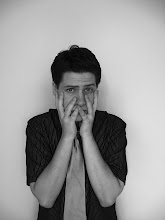Required Reading: How death increases entropy,
Before broaching a more subjective and less theoretical approach to the idea of death, I thought I'd tackle some potential links between physics and death.
On energy and entropy:
Entropy can be described as the total of all displaced, and therefore unusable energy (however it is ultimately a much more complex topic, relating heavily to thermodynamics). It is well known that all matter requires some form of energy to move, operate, or otherwise live.
Einstein’s law of the conservation of energy requires that any energy that is used in a process can not be caused to disappear or degrade. While the consumption of food provides energy, and sleep stores it for later use, such energies are expended through physical and mental activities, however strenuous. However, expended energy cannot be retained, reused, absorbed or lost entirely. Theoreticians have posited that entropy remains as a formless reserve of used and evermore useless energy.
On entropy and death:
The concept of entropy is applicable to death if one considers that all of the elements of life require the consumption of some kind of energy, whether it is kinetic energy for movement, or electrical impulses within the brain for thought or body awareness, etc.
In death, all of these energies seem to be dispersed. Indeed, it appears that no energies are animate or expendable in death beyond the decomposition process - a final outlet for any remaining energy in the body. Presumably, in death those once animate energies of the body are transposed into entropy. As entropy can not be accessed, its existence can not be verified, nor can its significance be made obvious, should it exist.
In death, all of these energies seem to be dispersed. Indeed, it appears that no energies are animate or expendable in death beyond the decomposition process - a final outlet for any remaining energy in the body. Presumably, in death those once animate energies of the body are transposed into entropy. As entropy can not be accessed, its existence can not be verified, nor can its significance be made obvious, should it exist.
For a short and amusing explanation of the link between death an entropy, I encourage you to read the brief article by Dr. Crystal Cooper that I linked at the top of this post.
On entropy and the afterlife:
At the risk of leaning too much toward Judaeo-Christian views, the process of energy converting to entropy in death can metaphorically mirror the passage of souls to heaven (in any number of limited or minimal interpretations thereof), or it could be that process in fact. Though unverifiable in its supernaturalism, it could be that a form of energy taken to be the soul - or merely the energies expended by the life process - could live on in a different way for a different means, through entropy.
My intent is not to posit any kind of definitive afterlife interpretation, nor even to posit an afterlife at all. Rather, my intent is to foster some hope for a reconciliation of science to common faiths, without casting aside logic. It is my experience that parallels often signify either extreme similarity, or perfect identification of events. This is to say that two things which have potential to parallel in such a way could easily be one and the same thing, though perhaps in less fantastical or logical ways.

These are some of the ideas I encountered in a "crash course" in Quantum physics. At the time, I was working on some Existential concepts, so I was not looking at how entropy would relate to Judaeo-Christian belief but to Existential philosophy.
ReplyDeleteAside from not being able to prove a thing, I have experienced what I believe to be souls as energy. I do believe in an afterlife but belief and proof - and physics seems to be the most fruitful approach to take for proof - still seem hard to reconcile.
Great post! Thank you for tackling this.